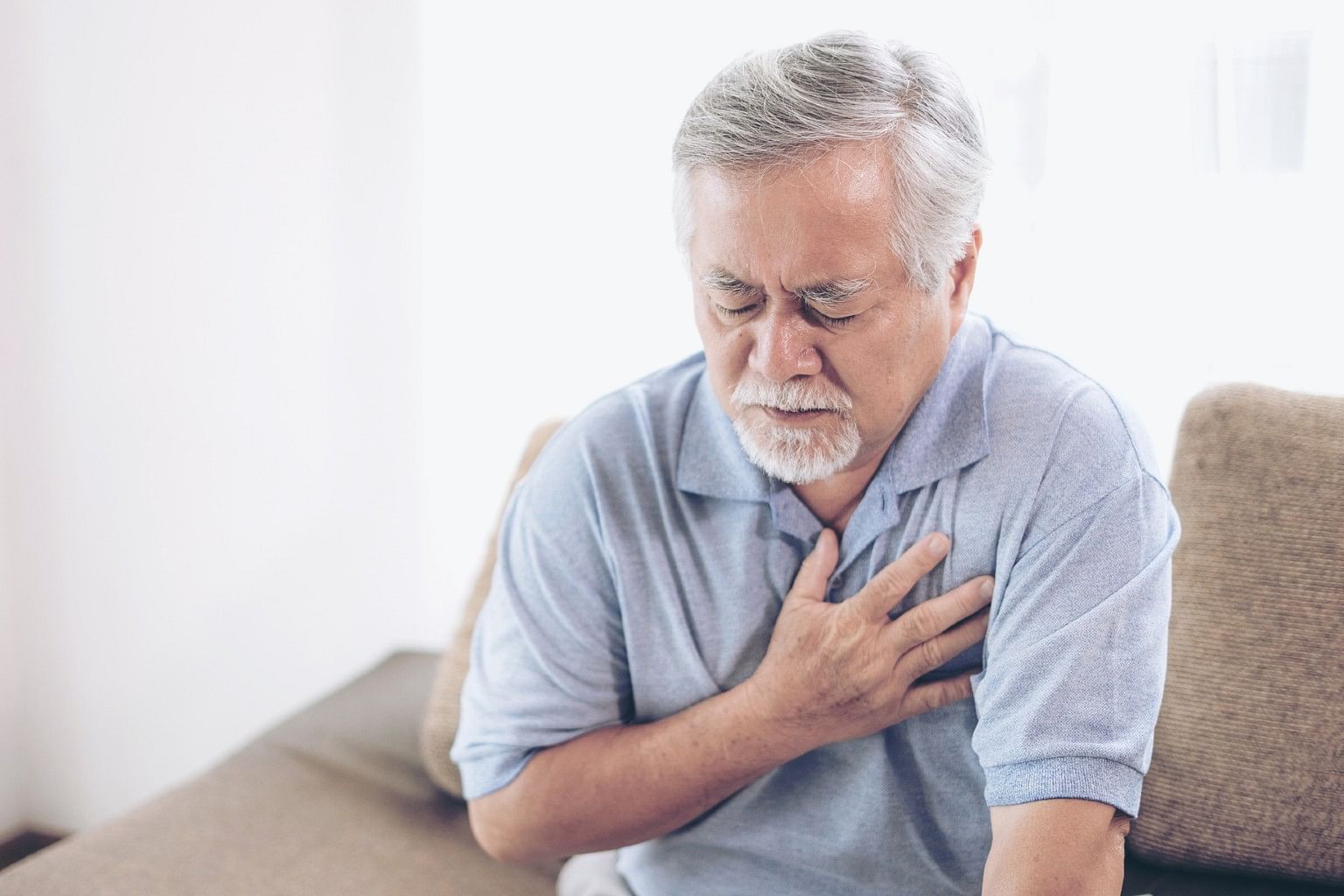BRANDED CONTENT
Cancer myths debunked: How early detection may lead to better outcomes
Doctors from IHH Healthcare Singapore explain how certain types of cancers have a better success rate when detected and treated early
Sign up now: Get ST's newsletters delivered to your inbox

Regular screening and early detection of cancer can improve survival rates. PHOTO: GETTY IMAGES
Follow topic:
With cancer increasingly prevalent in our society today, it is quite likely you know someone with it or perhaps are going through it yourself. Naturally, a cancer diagnosis tends to trigger some sense of fear and uncertainty. After all, it’s natural for patients to think about finances and confront the issue of mortality.
But while it is a leading cause of death in Singapore, according to the Ministry of Health, cancer need not be something to be feared. In fact, survival rates are actually quite high for certain types of cancers, especially when detected early.
“Cancer incidence continues to increase worldwide and cancer screening is advocated to detect cancers when they are asymptomatic. Screening is typically for cancers that are common and have a much better survival outcome when detected early,” says Dr Melissa Teo, general and colorectal surgeon, Mount Elizabeth Novena and Gleneagles Hospitals.
She and doctors from IHH Singapore, the private healthcare group comprising Gleneagles, Mount Elizabeth and Parkway East Hospitals as well as the Parkway Shenton group of clinics, answer common questions about cancer and screening.
Q. What sort of cancers can be treated if detected early?
Some common cancers in Singapore have high five-year survival rates. According to HealthHub, the five-year survival rate for the following cancers are:
- 87 per cent (prostate cancer)
- 81 per cent (breast cancer)
- 60 per cent (colorectal cancer)
Screening allows cancers to be detected in their early stages, when a person is asymptomatic, and this leads to better outcomes, including lower mortality, according to Dr Edwin Chng, medical director, Parkway Shenton.

With breast cancer, early detection through screening improves the chances of survival, making it one of the most treatable cancers, says Dr Ong Kong Wee, general and breast surgeon at Mount Elizabeth Novena Hospital.
Colorectal cancer, if detected at an early stage, has a five-year survival rate of 90 per cent. However, this rate drops to less than 5 per cent in most stage 4 colorectal cancers, explains Dr Teo, demonstrating the importance of screening.
Lung cancer has traditionally been the top cancer killer amongst Singaporean men. However, it should be noted that overall survival rates for both early and late stage lung cancer have improved over the years, due to the better treatment options and multi-disciplinary cancer care, says Dr Chin Tan Min, medical oncologist at Gleneagles and Mount Elizabeth Hospitals.
Q. Is it true that I am safe from cancer because I do not have a family history of cancer?
Whilst hereditary factors may contribute to a person getting cancer, many cancer patients have no family history of cancer, says Dr Teo.
Breast cancer is commonly thought to be hereditary as the gene mutation that causes it is passed from the parent. But in reality, fewer than one in 10 cases are associated with a family history, says Dr Ong.
Dr Teo adds that cancers can occur even in those without any known risk factors and one should not delay seeking medical attention for any symptoms, and undergo screening at the recommended age.
Q. What are some cancer symptoms I should look out for?
Screening of cancers is for people without any symptoms. Once one has symptoms such as a change in bowel habits, rectal bleeding, a palpable lump, a skin lesion that has changed in size and nature suddenly, or unexplained loss of weight and/or appetite, seek medical attention immediately, says Dr Teo.

She adds that regular health checkups are important as they may identify serious health conditions. They would also allow a patient to correct underlying issues to reduce the progression of diseases.
Lung cancer is often detected at a late stage as it may have few noticeable symptoms. Common symptoms include a persistent cough or one that gets worse, trouble breathing, constant chest pain, coughing up blood, feeling fatigued and unexplained weight loss, says Dr Chin.
However, these symptoms are not exclusive to lung cancer, making it harder to detect. Anyone with persistent symptoms should seek medical advice immediately.

Q. When should I go for cancer screening?
Early detection through screening and treatment translates to better outcomes, says Dr Chng. The following serves as a general guide:
Breast cancer
Age: 40 and above
Test: Mammography
Frequency: Annually for women between age 40 and 49; once every two years for women above 50
Test: Mammography
Frequency: Annually for women between age 40 and 49; once every two years for women above 50
The mammogram is the most reliable screening tool for breast cancer, says Dr Ong. With early detection and diagnosis, along with wider public awareness and better treatment methods, three out of four breast cancers are now discovered at an early stage. Apart from improving the chances of survival, patients with early cancers are also suitable for shorter and more tolerable treatment options.
Lung cancer
Age: Between 55 and 74, if you are a heavy smoker (one who has smoked a pack a day for 30 years)
Test: Computerised tomography (CT) scan
Frequency: Yearly, till age 80. Past smokers who have quit for 15 years or less should also be screened.
Test: Computerised tomography (CT) scan
Frequency: Yearly, till age 80. Past smokers who have quit for 15 years or less should also be screened.
Colorectal cancer
Age: 50 and above
Test: Faecal immunochemical test (FIT), a colonoscopy or CT colonography.
Frequency: FIT annually; colonoscopy every five to 10 years for those without family history
Test: Faecal immunochemical test (FIT), a colonoscopy or CT colonography.
Frequency: FIT annually; colonoscopy every five to 10 years for those without family history
Screening allows for the detection and removal of polyps (tissue growth) before they become malignant in most situations, says Dr Teo.
Q: What types of treatments are available?
The choice of treatment depends on several important factors such as the cancer type, stage of the cancer, size of the tumour and the patient’s general health, says Dr Ong.
Treatment may involve one or a combination of methods such as surgery, chemotherapy, targeted therapy, radiotherapy or immunotherapy depending on the stage of cancer.
The recovery for early stage cancers tends to be much faster, with a quick return to one's baseline quality of life. The cost of medical treatment for early staged cancers is also significantly less, but most importantly, the improvement in survival is vastly different, so be smart and start your cancer screening journey now to live well and live long, advises Dr Teo.
Cancer screening packages available at IHH Singapore Hospitals and Clinics
IHH Singapore offers two screening packages:
1. Basic LifeScreen, $198
The package identifies risks associated with your lifestyle and family medical history. It comprises blood and urine tests for common cancers and chronic diseases as well as colorectal screening.
2. Comprehensive LifeScreen, $768 (males) / $958 (females)
The package involves a more rigorous screening that includes a urine test, blood tests and selected ultrasound scans for common cancers and chronic diseases.


